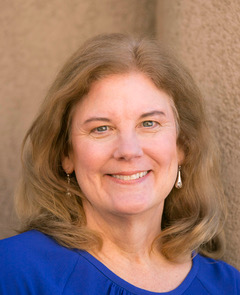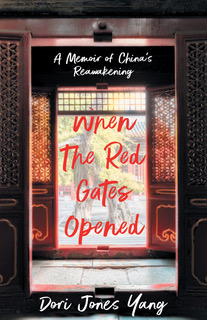An Interview with
DORI JONES YANG

Dori Jones Yang
Author

When the Red Gates Opened
Dori Jones Yang
Dori Jones Yang is the author of When the Red Gates Opened: A Memoir of China’s Reawakening, the story of her eight years as a foreign correspondent covering China during a pivotal time in history.
Born in Youngstown, Ohio, and educated in history at Princeton and in international relations at Johns Hopkins, Dori worked many years as a journalist for Business Week and U.S. News & World Report. She speaks Mandarin Chinese and has traveled widely in Asia.
- Can you tell us a little bit about your career and how you became a foreign correspondent during this time?
Sure! Growing up in Ohio, I loved writing and foreign languages. My first journalism job was at my local newspaper, and I was hooked. I knew nothing about Asia until after college, when I spent two years in Singapore studying Chinese. By stroke of good luck, I finished grad school (in international studies) just as the U.S. and China established diplomatic relations. Few Americans knew much about China, so that put me in a great spot to become a foreign correspondent.
- How has the relationship between the U.S. and China changed since your time as a correspondent?
In the 1980s, China was emerging from thirty years of isolation, so many Americans were eager to visit and do business there. Although China was poor and backward, it was a time of hope and possibility. Few imagined China could grow so quickly and rise to become a modern power. In recent years, many American leaders have become nervous about China’s advancing technological expertise, fearing that its rise could mean our downfall. The spirit of mutual respect and cooperation has badly eroded, and now 73 percent of Americans have a negative view of China. I’ve been dispirited to see how political leaders use China as a convenient diversion or punching bag.
- What is “missing” from many Americans’ understanding of China?
When you live in another country, you realize that it encompasses a wide range of individuals—not just the government. A few of my American friends think “China is evil”—based on Beijing’s policies toward Muslims, or Hong Kong, or the Internet. “China” is more than its current president, just as the United States is more than Donald Trump. A new generation of Chinese has grown up in a modern society, able to travel and study abroad; they have created the largest consumer market in the world, and they will become leaders someday. China has a modern infrastructure, but its per capita income is still only $10,000—one-sixth that of the United States. Its leaders want China to take its “rightful place in Asia;” that doesn’t mean displacing the United States as the world’s superpower. A U.S. policy of belligerence and confrontation toward China could be self-destructive.
- These were incredibly formative years for China but also you personally. What parallels do you see between the two during this time?
As a Communist leader, Deng Xiaoping defied the odds when he allowed capitalism in China, and I was defying the odds, too. As a young woman in the male-dominated world of business journalism, alone in a foreign bureau, I was learning my way by trial and error. So was Deng. I faced some personal dilemmas that seemed unsolvable, as did the future of Hong Kong when Britain and China began discussions. A true dilemma, I learned, is not a choice between right and wrong. It’s between two options that are equally compelling—or equally hazardous.
- As a journalist you had notes and articles to pull from to look back on this time— what was most challenging in writing this memoir?
What’s hardest about writing a memoir is the need to shine a light on your insecurities and reflect on your decisions. It forces you to be honest. It also demands you rethink your fraught relationships and decide how much to include. If someone might be hurt by a revelation, do you have a good reason to include it? I had to decide what were the major themes and include only as much as was needed to tell that story.
- What do you hope readers gain from When the Red Gates Opened?
Why should any of us look behind the next hill, or across the border, into the warm living rooms of ordinary people who don’t look or talk as we do? If we cross those thresholds and listen in the language of people we too often misunderstand, we can see the world through their eyes and open our minds. If more of us from all countries committed to cross-cultural understanding, we’d increase the chance for world peace, which could benefit all.
To learn more about Dori Jones Yang and her other books go to https://dorijonesyang.com/
When the Red Gates Opened: A Memoir of China’s Reawakening
is published by She Writes Press (2019 Indie Publisher of the Year)
and is available on Amazon.
“I had to decide what were the major themes and include only as much as was needed to tell that story.”

Snag my in-depth reference guide to best equip you for the journey ahead.


